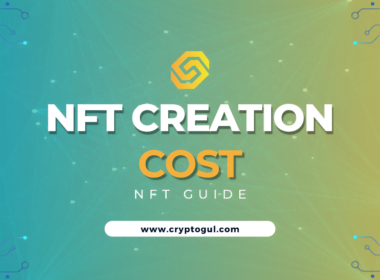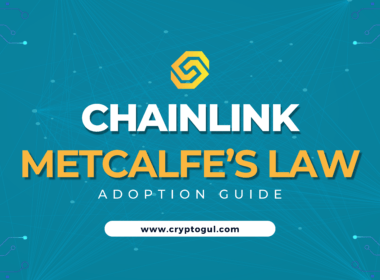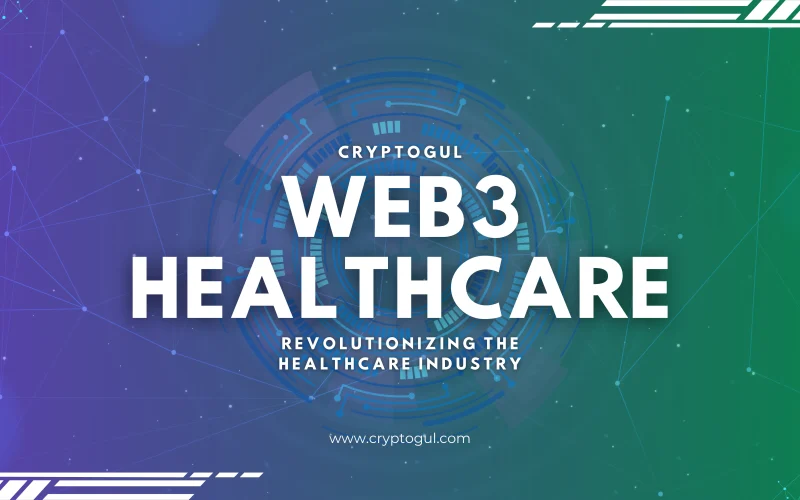The emergence of web3 healthcare signals a new era of transformation for the healthcare industry.
In this article, we will delve into the cutting-edge applications of web3 healthcare and how they can revolutionize the way we manage our health and well-being.
The Web3 Healthcare Revolution
Web3 is built on blockchain technology and offers endless possibilities to revolutionize the healthcare industry, including secure data storage, patient-centric care, and improved efficiency.
Here are some key areas where web3 technologies can make a significant impact:
Blockchain-based Electronic Health Records
One of the most ground-breaking innovations of web3 in healthcare is the creation of blockchain-based electronic health records (EHRs).
Decentralized records enable secure and transparent data sharing between patients, doctors, and other healthcare providers.
This, can improve the quality of care and reduce medical errors. Whilst also opening up monetization routes for clinical trial data.
Patient Data Privacy and Security
With the increasing prevalence of cyber attacks and data breaches, ensuring patient data privacy and security is more important than ever.
Blockchain technology offers a secure, decentralized solution for storing and sharing patient data, ensuring that sensitive information remains confidential and protected from unauthorized access.
Telemedicine and Remote Consultations
Web3 technologies can also facilitate telemedicine and remote consultations, enabling patients to access healthcare services from the comfort of their homes.
This can be especially beneficial for people living in rural areas, those with mobility issues, or individuals under quarantine during a pandemic.
Supply Chain Management
Blockchain technology can enhance transparency and traceability in the healthcare supply chain.
This can help combat counterfeit drugs, ensure the safe transport of temperature-sensitive products, and improve inventory management.
Tokenization of Healthcare Assets
Tokenization is the process of converting physical or digital assets into digital tokens on a blockchain.
In healthcare, this could involve tokenizing medical equipment, research funding, or even patient data.
Tokenization can provide new funding models, enable fractional ownership, and facilitate the efficient allocation of resources.
Web3 Healthcare Use Cases
The potential use cases of web3 technologies in healthcare are vast and varied. Here are five promising examples:
Decentralized Clinical Trials
Decentralized clinical trials, where patients can participate from anywhere in the world. This can help reduce costs, accelerate drug development, and increase patient engagement.
IoT and Wearables
The Internet of Things (IoT) and wearable devices can be integrated to collect real-time patient data securely and efficiently. This can empower patients to take control of their health and enable personalized care plans.
Genomics and Personalized Medicine
Blockchain technology can facilitate the secure storage and sharing of genomic data, paving the way for personalized medicine.
This could enable healthcare providers to tailor treatments to each individual’s unique genetic makeup, potentially improving patient outcomes and reducing side effects.
Artificial Intelligence and Machine Learning
Combined with artificial intelligence (AI) and machine learning (ML), we can then analyze large amounts of healthcare data. This can lead to more accurate diagnoses, better treatment recommendations, and improved overall healthcare efficiency.
Virtual Reality and Augmented Reality
Virtual reality (VR) and augmented reality (AR) can be integrated to create immersive and interactive healthcare experiences. This could be used for medical training, patient education, or even remote surgery.
Web3 Healthcare Challenges and Obstacles
Despite the numerous benefits and potential use cases, several challenges and obstacles must be addressed before web3 technologies can fully revolutionize the healthcare industry:
Regulatory and Compliance Issues
Healthcare is a highly regulated industry, and navigating the complex web of regulations can be challenging. Ensuring that web3 healthcare solutions comply with existing laws and regulations, such as HIPAA and GDPR, is essential.
Integration and Interoperability
Integrating this technology with existing healthcare systems and infrastructure is complicated. Ensuring seamless interoperability between various platforms and data formats is crucial for widespread adoption.
Web3 Healthcare Adoption and Education
Finally, the adoption of web3 healthcare solutions depends on the willingness of healthcare providers, patients, and other stakeholders to embrace these new technologies. Educating all parties about the benefits and potential use cases is necessary to drive widespread adoption.
Web3 healthcare refers to the use of decentralized technologies, such as blockchain, in the healthcare industry to improve data security, patient care, and overall efficiency.
Blockchain technology can be used in healthcare for secure data storage and sharing, supply chain management, and the tokenization of healthcare assets.
Improve patient care, data security, and overall efficiency by enabling secure and transparent data sharing, patient-centric care, and new funding models.
The main challenges include regulatory and compliance issues, integration and interoperability, and the adoption and education of healthcare providers, patients, and other stakeholders.
As the healthcare industry evolves, this new technology is expected to play a crucial role in shaping the future of healthcare, with innovative use cases driving improved patient outcomes, increased data security, and greater efficiency.












